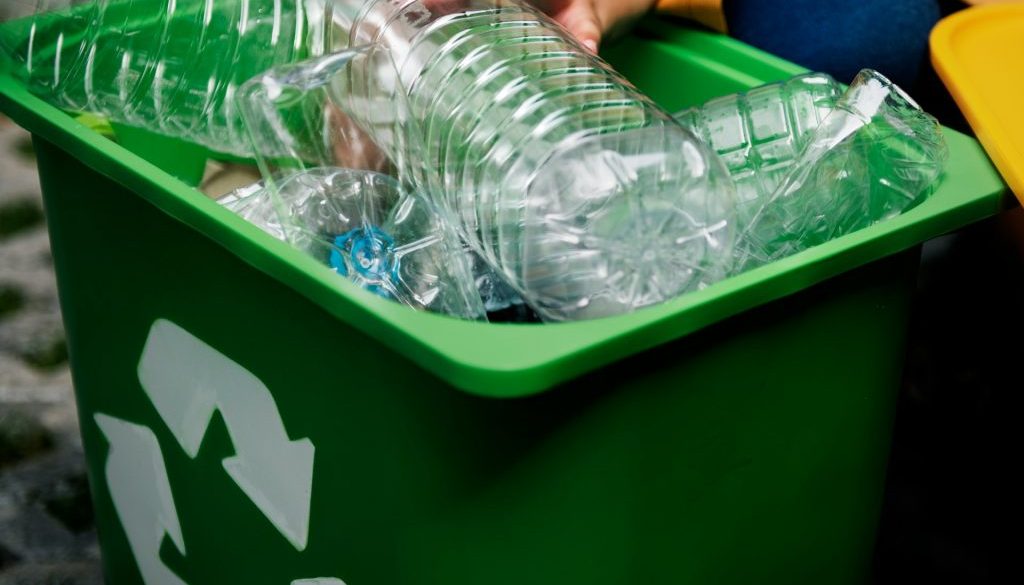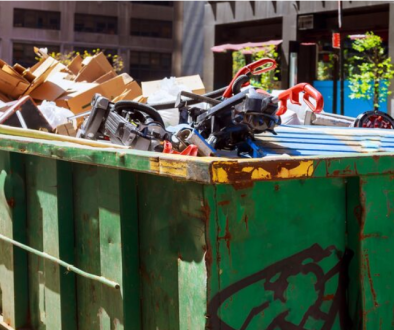Managing waste might not be top of mind for small teams focused on their day-to-day work, but it ends up having a big impact when not handled properly. Whether it’s a small workshop, retail space, or shared office, rubbish builds up quickly and space runs out even faster. That’s where a better setup can make regular waste handling feel less like a chore and more like something that just runs in the background, without effort.
For teams in Crewe, hiring a skip can really take the pressure off. It’s simple, effective, and can be fitted to suit both the volume and type of rubbish you’re dealing with. What matters most is putting a plan in place that not only keeps your workspace clear but makes it easier for everyone to chip in without confusion.
Understanding The Waste Management Needs Of Small Teams
No two businesses deal with rubbish the same, even when they look similar on the surface. One shop might throw away heaps of packaging material each week, while another ends up clearing out bulky displays every few months. That’s why it’s useful to pause and work out what kind of waste you’re regularly generating. This insight helps you figure out how often your skip should be emptied and what size would actually suit you.
Common examples of waste small teams often handle include:
– Lightweight packaging like cardboard, polystyrene, and plastic wrap
– General rubbish from desks or counters, including food wrappers
– Bulky items such as shelving, broken tools, or damaged stock
– Offcuts or waste from workshops, like bits of wood or mixed materials
By taking a quick weekly note of what’s being discarded, teams can spot patterns early and avoid the usual last-minute panic when the bin starts to overflow. It also makes it easier to group similar types of rubbish together, which helps when filling a skip properly. For example, if you’ve got regular cardboard boxes, flattening and stacking them becomes a habit that saves space and keeps things tidy from the start.
Think of it like organising a cupboard. You wouldn’t just throw everything in. If too much goes in without thought, it overflows, making it harder to shut and even harder to find what you need. Waste management works the same way. With a bit of structure, it makes every other task easier.
Efficient Use Of Skip Space
Once you’ve figured out what’s piling up, the next step is getting the most from your skip. Space is money, and it’s surprising how much room gets wasted when things go in without a plan. Being smart about your skip layout isn’t about perfection. It’s just about keeping some order and knowing what fits where.
Here are a few easy ways to fit more rubbish in your skip without needing a second one:
1. Break Down Everything
Don’t toss full boxes or half-built stands into the skip. Flatten cardboard, unscrew stands, or split pallets. This reduces size and makes stacking cleaner.
2. Start With The Heavy Stuff
Larger, solid items like broken tools or shelves should go into the skip first. This creates a level base and stops lighter stuff from being squashed in weird angles.
3. Flatten, Fold, And Compress
Soft packaging or wrappers can go in the empty spaces. Think of them like filler. Shove them between big pieces rather than letting them take up full corners.
4. Stack Similar Shapes Together
Keep furniture with furniture, cardboard with cardboard, and bags with bags. It helps avoid awkward gaps and keeps your skip from turning into a wonky pile.
5. Don’t Overfill
It’s tempting to shove in just one more load, but overfilling causes problems on collection day. Skips should be filled to the top edge, not above.
Even new recruits can pick up these tricks quickly with a bit of visual guidance or a short team chat. It’s all about small habits that help your skip do the job without waste getting in your way. When the skip is filled properly, you’re not only saving space but also time and money.
Scheduling And Frequency Of Skip Collections
Once waste levels and skip space are under control, timing becomes the next thing to fine-tune. One of the biggest challenges small teams in Crewe face is sticking with a skip that isn’t emptied often enough, or worse, one that’s collected too frequently and wastes money. A flexible pickup plan tends to work best, but you first need to get an idea of how fast the skip fills on a typical week.
Start by tracking usage for two weeks. Note how many days it takes on average to reach the skip’s limit. If you’re halfway full after one week, then a collection every ten to fourteen days might work better than a fixed pick-up day each week. If you’re already pushing the limit after just a few days, you might need a bigger skip or more frequent pickups to avoid overloading.
Some signs you may need to revise your schedule:
– Piles of rubbish building up beside the skip
– Overflow even with thoughtful stacking
– Waiting for pickups with a half-empty skip
– Rubbish getting in the way of walkways or work areas
Every team’s pattern will look a bit different, but sticking to a regular plan helps avoid surprises. Don’t wait until it’s too late to book a pickup. Add it to someone’s weekly checklist, or rotate the task so it doesn’t get forgotten.
Seasons play a part too. Busy retail months like autumn or spring cleaning periods could mean more rubbish than usual. Planning in advance for those times, maybe with an extra collection or upsized skip, helps avoid a backlog and keeps things flowing without hiccups.
Promoting A Waste-Conscious Work Culture
Even the best skip hire setup won’t work if the team’s not on board. Everyone needs to be in the loop and doing their bit. That takes a bit of organisation, but it doesn’t need to be difficult.
Start with the basics. Clear labels on sorting bins and signs above the skip help steer the flow of rubbish to the right place. Use simple wording like “cardboard only” or “no general waste here.” This avoids constant questions and quickly forms new habits.
Here are a few more ways to get the whole team involved:
1. Give clear instructions to new starters. Show them how to use the skip properly.
2. Call out repeat issues in a friendly way and suggest fixes.
3. Make it easy. Place sorting bins near work areas so people don’t need to walk far to use them.
4. Add a five-minute skip check during quiet times or end-of-shift rounds.
5. Recognise effort. A short thank you goes a long way when improvement is spotted.
One small café in Crewe improved their skip use just by flattening food boxes during morning prep. A tiny shift like that saved them space and time with no extra tools or cost, just a bit of forethought.
This process shouldn’t feel like hard work. It’s just about building habits that keep the space tidy and the skip effective. If rubbish handling becomes normal and expected, your skip does its job better and the whole workplace benefits.
Making Everyday Rubbish Handling Easier
Handling waste properly doesn’t need to feel like another job on the list. When you’ve got the right skip size, a layout that makes smart use of space, and a schedule that fits your team’s pace, tidy becomes the standard. Your workplace stays clear, your team moves freely, and there’s less time spent dealing with last-minute waste problems.
Small teams in Crewe already juggling day-to-day tasks deserve a simple waste plan that works in the background. With a few shared habits and a bit of structure, managing rubbish becomes automatic. If your setup could use a refresh, looking into skip hire might be just the thing to keep things running smoothly.
If your team is ready for a simpler way to manage waste, Enviro Skip Hire can help you stay on top of it without the hassle. Whether it’s regular clear-outs or day-to-day rubbish, consider hiring a skip in Crewe to keep your workspace clean and stress-free. With flexible options and straightforward service, we make waste management easier for small businesses that want to focus on the work that matters.




